Portuguese grilling is pretty easy. All that’s needed is a sprinkling of salt and some olive oil before slapping a good fish on a hot grill.
By Rochelle Ramos
During a Portuguese Summer there is only one way to cook: grilling. Well, that’s only partially true. You can bake or roast, stew or boil, saute or fry or any of the countless other techniques that are used everywhere else in the world, but then your home will turn into a sweltering oven and you’ll probably cook yourself in the process. Let’s just say, it’s not the best idea, making grilling outside the best option.
As with the rest of the world, there are some top things that go great on the grill here, but my favorite is the peixe e marisco (fish and seafood). Maybe that is because I’ve always loved both, or maybe it’s the fresh variety you can get here that it seems silly to do much else. It’s also easy and uncomplicated, but oh so good. Take for instance the carapau, an inexpensive and tasty fish that you can find just about anywhere.
For those that don’t know about carapau, don’t worry, it’s not some weird fish that you’ve never heard of. It’s in all actuality, mackerel. I found this out only a few months ago when I went on a walking food and wine tour in downtown Lisbon guided by my friend Andrea, who just happens to be another American in Portugal. She was able to educate me on many foods in Portugal that I had no idea what they were called in English or Portuguese. Needless to say, it was a much needed tour.
Now, as I said, Portuguese grilling is pretty easy. It doesn’t need complicated spices or marinades, though it is done. Usually all that is needed is a sprinkling of salt and a drizzle of olive oil before slapping a good fresh fish on a hot grill. Squeeze some lemon juice and add some fresh coentros (cilantro/coriander) on top and you’re good to go!
PrintGrilled Carapau
- Total Time: 25 minutes
- Yield: 6 1x
Description
Grilled carapau, or mackerel, is a Summer favorite in Portugal because of it’s delicious flavor and low cost.
Ingredients
- 6 fresh carapau (mackerel)
- salt
- olive oil
- 1 lemon (optional)
- cilantro (optional)
Instructions
- Rinse carapau under cool water to remove any loose scales and pat dry with paper towels. Place fish in a tray before seasoning.
- Sprinkle each side of fish with salt and drizzle with olive oil. Cover and set aside while you get the grill ready.
- Clean and oil the cooking grate.
- Build a hot fire for grilling. If using wood or charcoal, wait until the fire has died down to red hot coals before cooking over them.
- Lay carapau (mackerel) on the oiled grill grate and cook 4-10 minutes each side, depending on how big the fish are. When sardines are fully cooked, they will be firm and inside meat will be opaque.
- Squeeze lemon juice on top and sprinkle with cilantro.
- Prep Time: 5 mins
- Cook Time: 20 mins


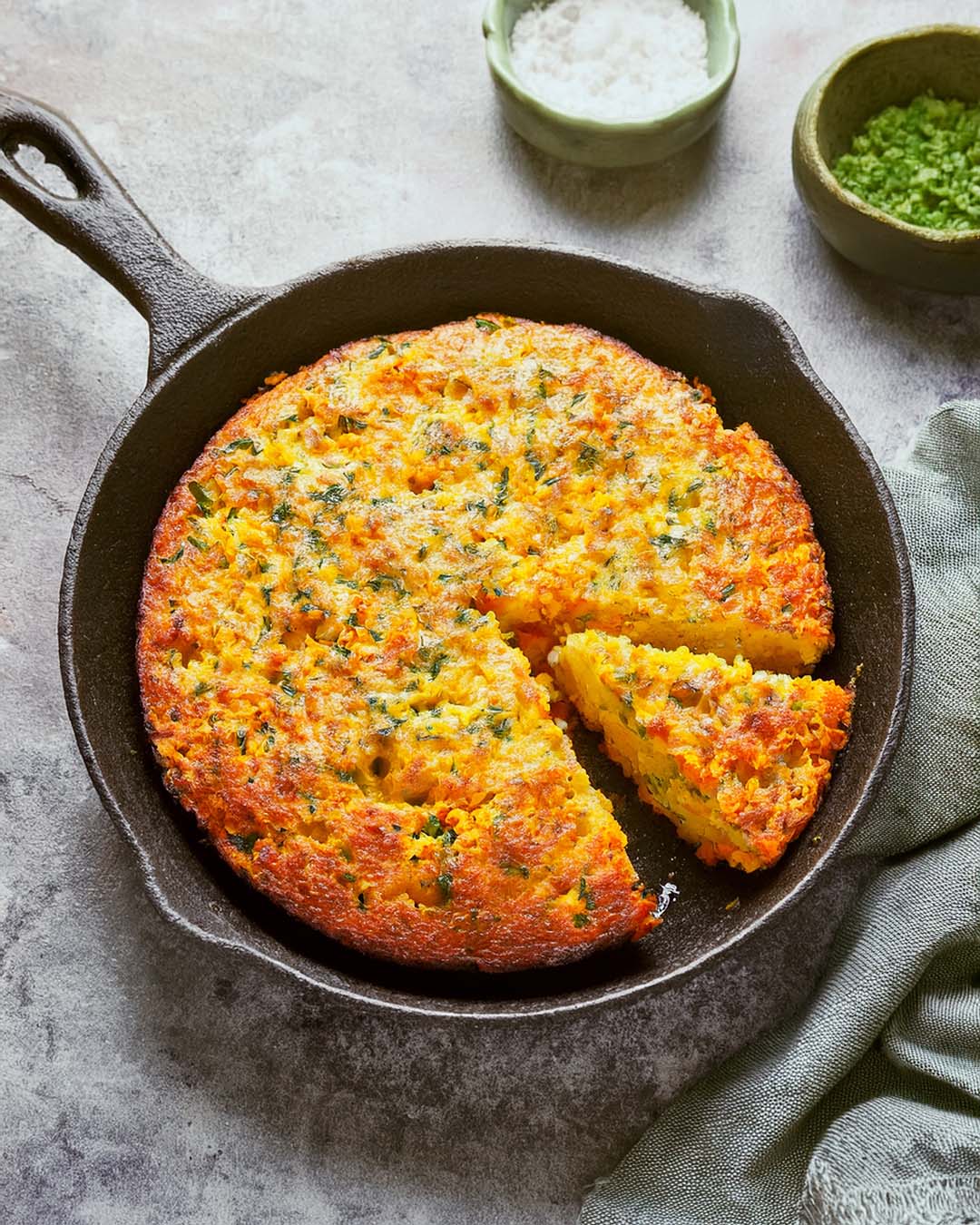
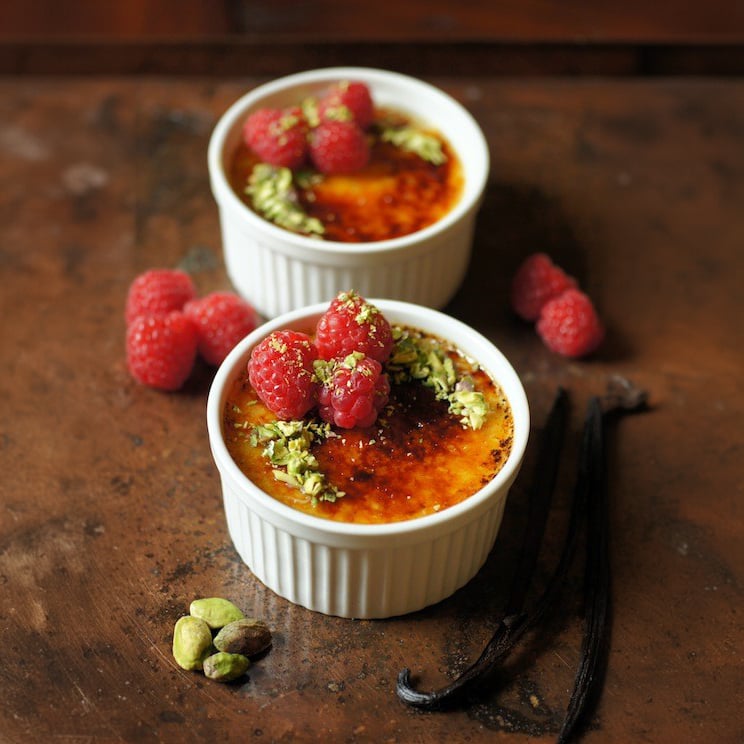
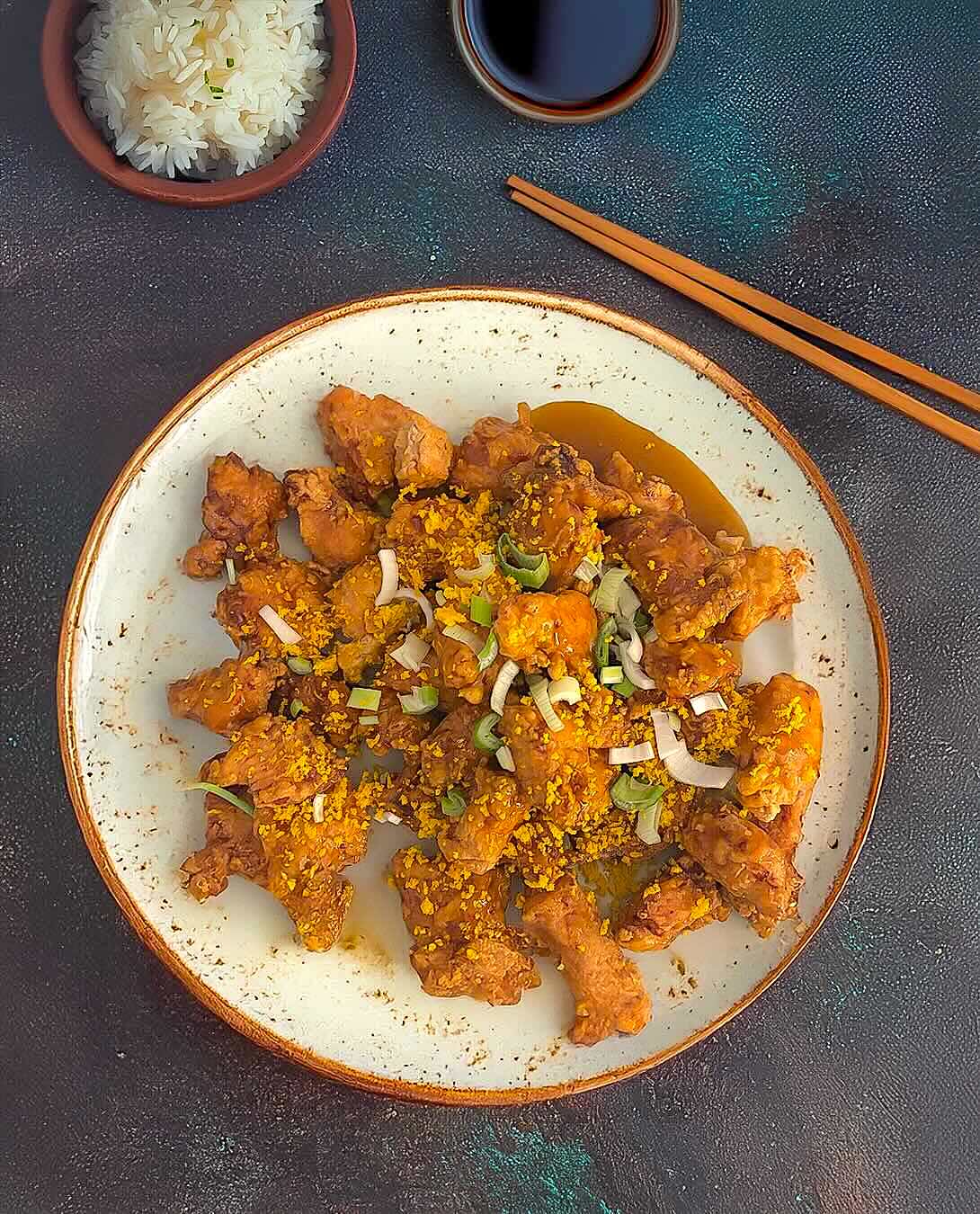
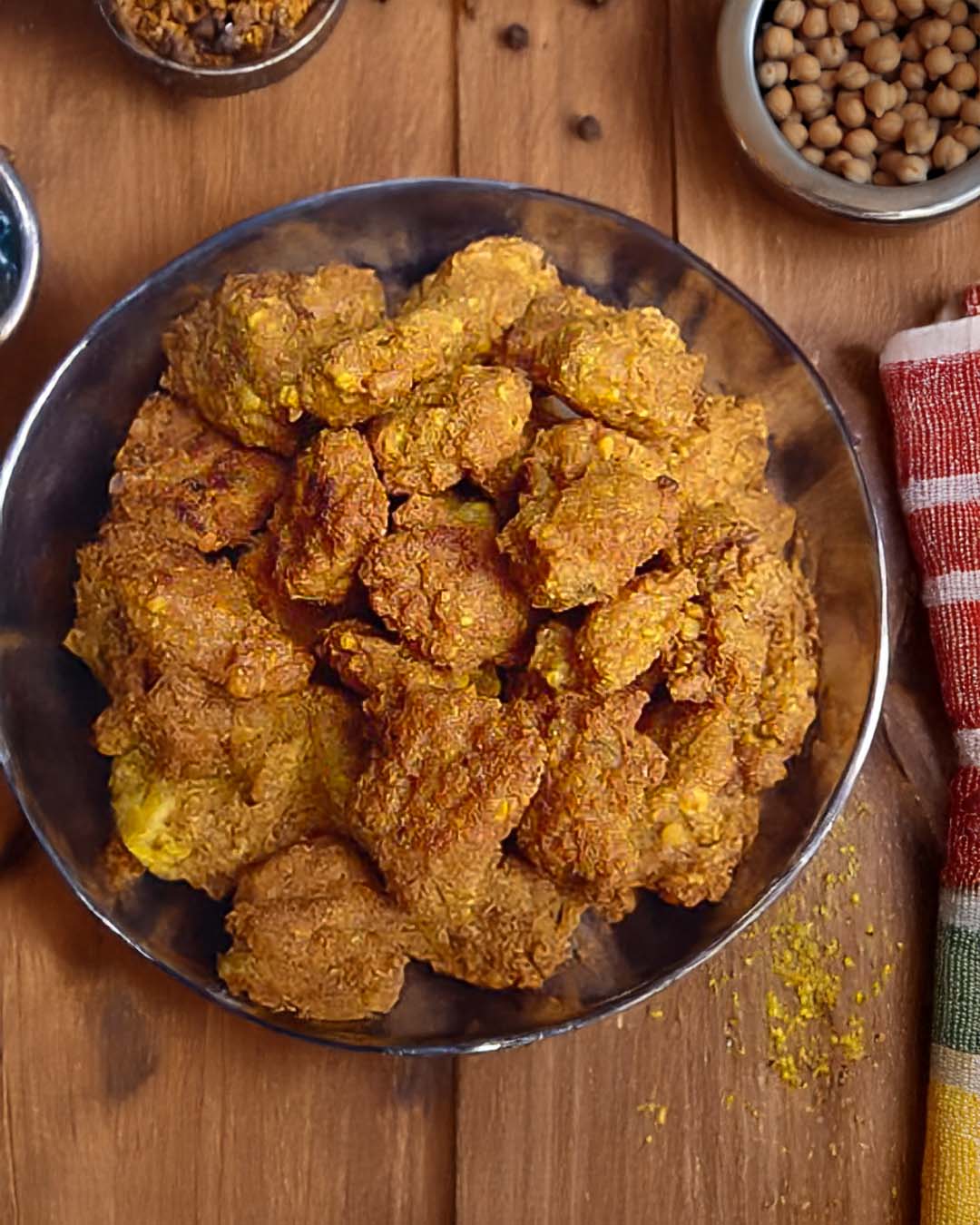
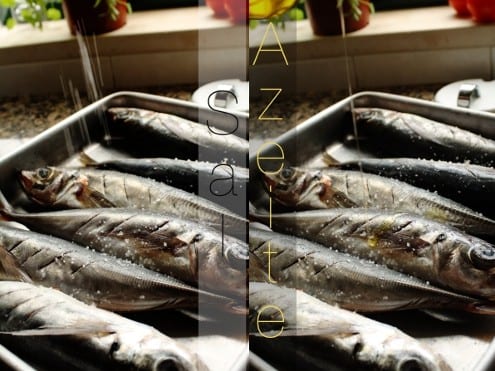
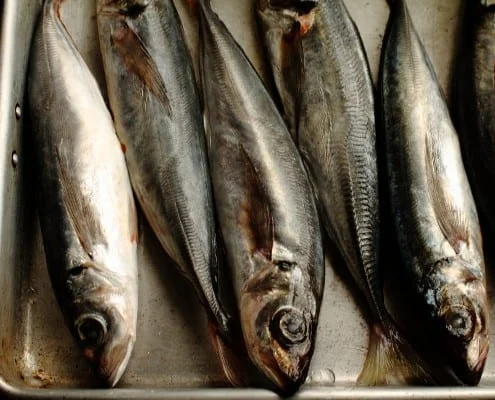
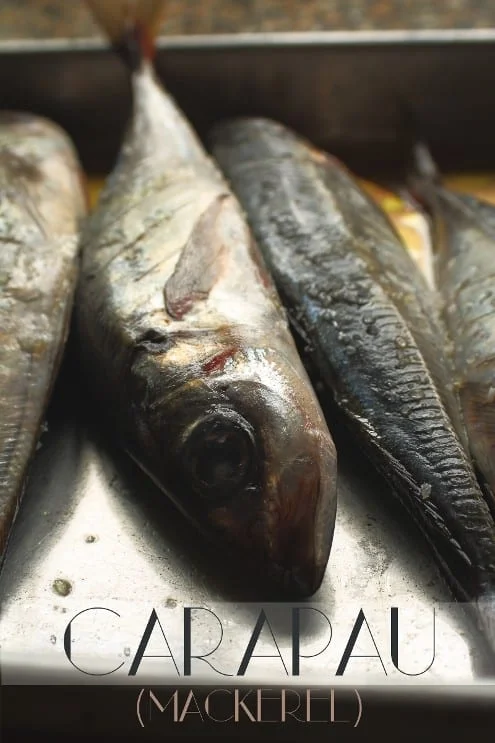
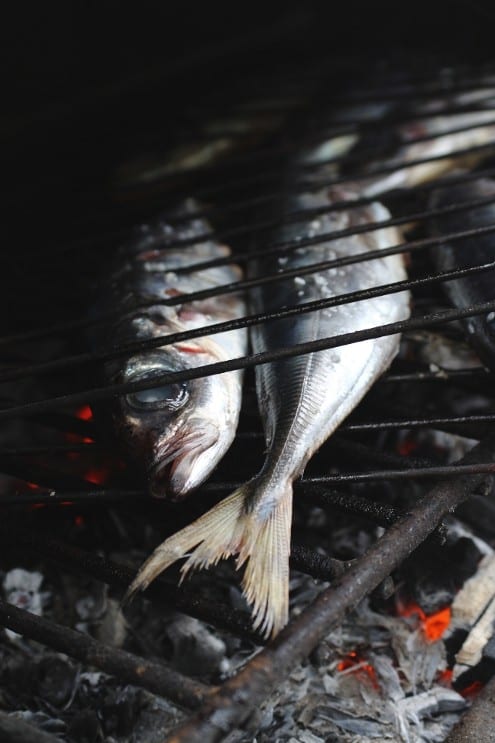
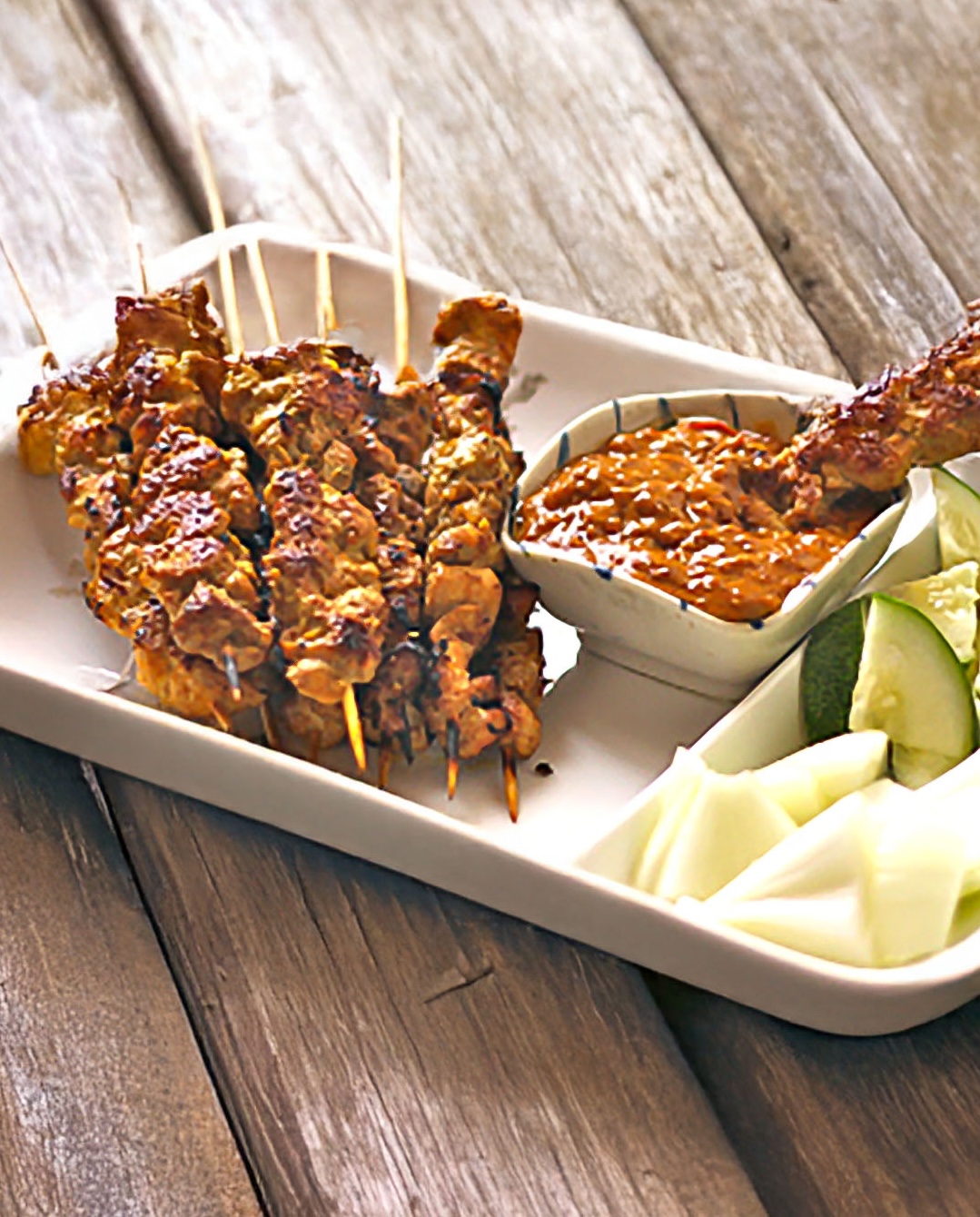
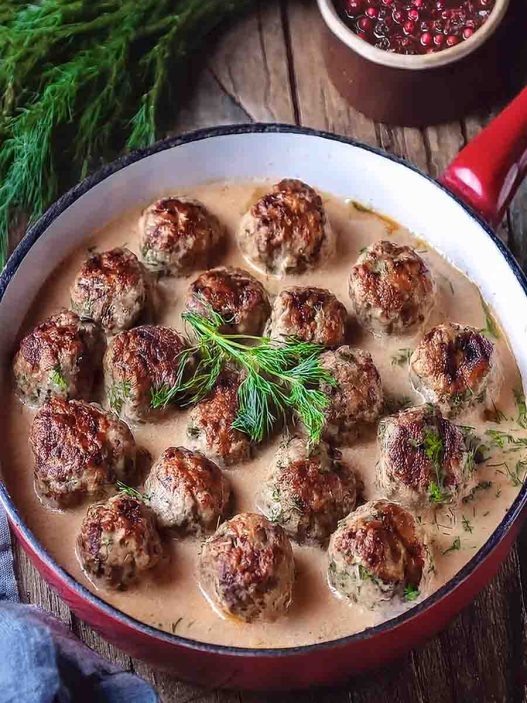
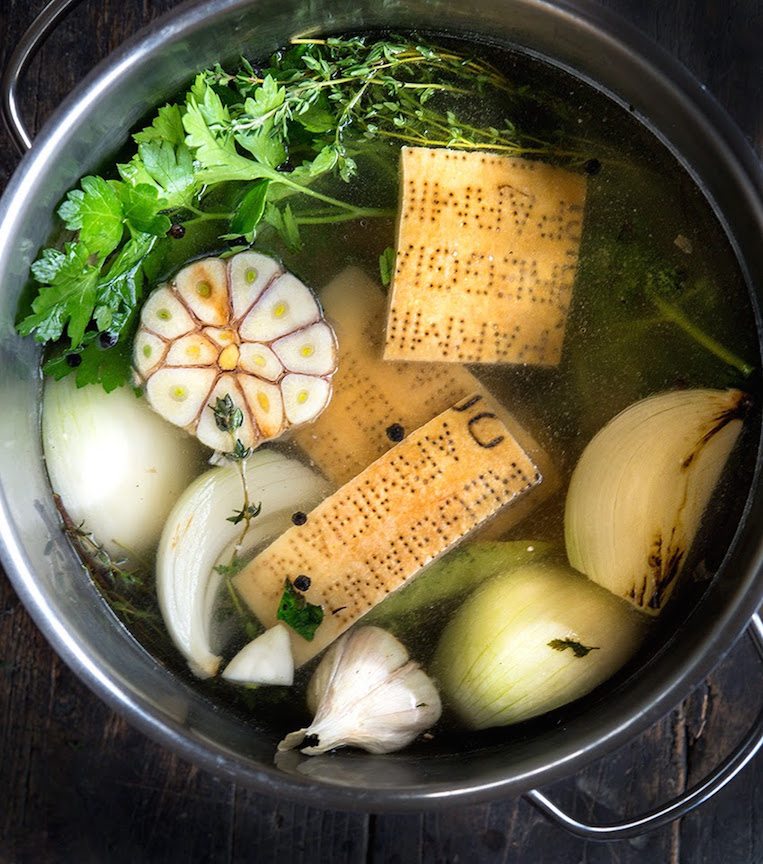

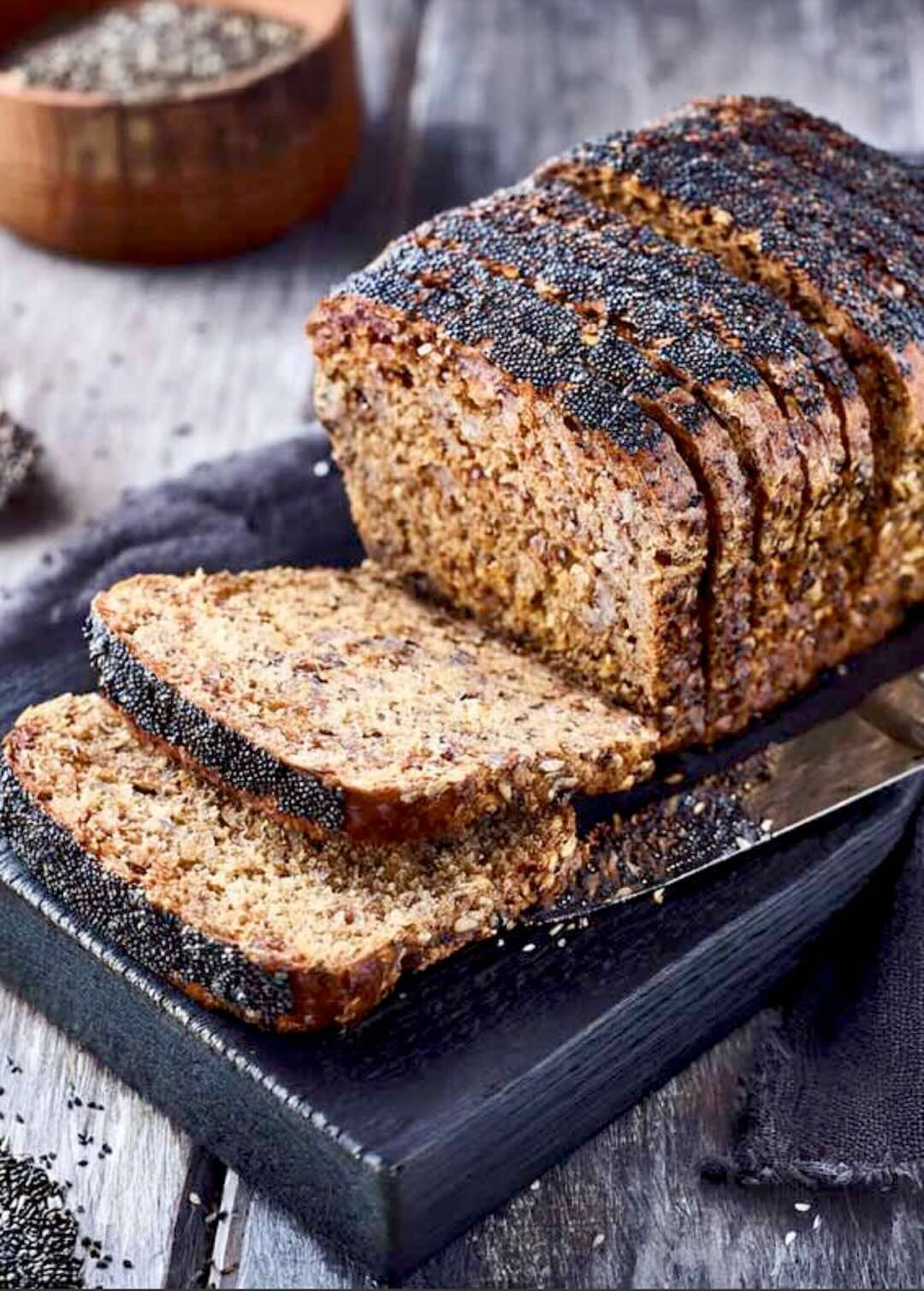
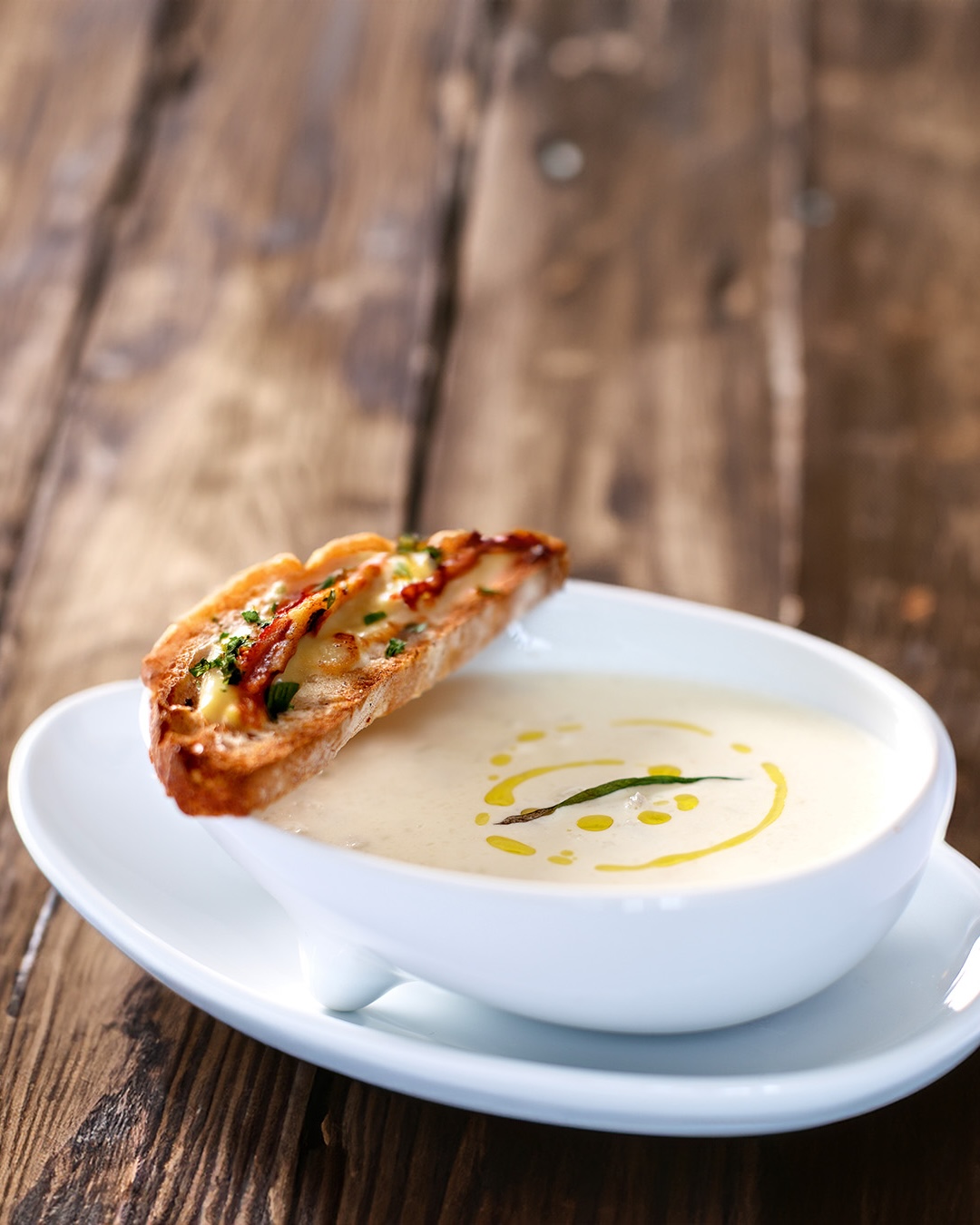
Eu Amo Carapau it is very rich in taste i master it so well…
Portuguese people don’t used cilantro.. Cilantro is used by Spanish. They used parsley. Cilantro taste awful and smell stink!
Hello everyone.
I am a Portuguese living in the USA since 1979, but I am from the south, from Algarve which is a touristic province of Portugal.
I grow up near the sea and all my life hate Carapaus, Sharro do Alto, Sardines, Cavalas, whatever everyone wants to call they’re fish in they’re area.
Where I am from, Carapaus are the ones you show in your pictures on top and are at most about 7 inches long. When they are longer then that, we call them Sharro do Alto ou sharro Negrao.
With all that said, there is no right or wrong way of grilling them, the way of serving them, yes, there is where the secret is.
I grow up eating them with some olive oil and some minced garlic and parsley together on the plate and a few small broiled potatoes on the side.
When they are small, say about 5 inches long, I eat them fried.
Delicious, but this is me and I am sure that many other people love them any other ways.
Enjoy the.
It sounds great
Thanks for your article! My Portuguese boyfriend was trying to explain Carapau to me when I found your description. Apparently, there are not that many Americans in Portugal. I appreciate that I can read about what both you and Andrea have to say about the country and its cuisine. It will help me learn to cook some traditional dishes for him. Keep up the good work! Many thanks from a fellow American girl :-)
From my native Island of Sao Miquel, we call them chicharros. It is one of my favourite dishes for lunch. We first gut and clean them, wash them, flour them, fry them with mostly olive oil at high heat. Serve them with boiled potatoes, mulho vilao(sauce), corn bread, and red wine if you are not going back to work. For the mulho, I put it on the potatoes and not the fish, as I like to keep the fish crispy.
I am fortunate to find a place in the Toronto area that comes very close to the way I had them as a child.
I, a Dutch woman, live partly in Grandola, Portugal. It is true: the best way you can eat the carapau, as well as the sardines, is on the grill. The restaurant next the Bombeiros in Grandola, has his grill on the street. So inviting! The locals and the tourists come in after 12 o’clock in a big crowd. The meal is simple but yummy! Special the carapau. The wine is plenty and good!!
Enjoy your meal in this beautiful Alentejo area!
I* bought frozen carapau and would like to know if I can grill them as is on a charcoal fire or if I must thaw them first and gut them
You need to try Portuguese sauce. Just forget Spanish sauce. I noticed too many American like you always say Spanish this and Spanish that. Please try to appreciate Portuguese too. Do not ignored Portugal! American people need to pay attention to Portugal as well. Sighing.
A Portuguese Cavala is a correct word for Azorean and Portuguese people. By the way, I am fully blood Portuguese from Ponta Delgada, Azores, Portugal. I loved fried Cavala along with the side is broil potatoes, hot pepper, and corn bread. You can also use Portuguese spicy sauce on it or on broiled potatoes if you want. Delicious! I am not going where and not even in America. I had been in America. I disliked their food. Too many fast foods and restaurants have too many meats and less fishes — Yucky. I am glad to be here in Portugal forever! Sorry about my English.
Carapau is called Horse Mackerel in the UK.
In the UK Mackerel is quite an oily fish
Actually what you call Makarel in UK it’s nothing like Carapau. In Portugal we call Macarel or Cavala to the Makarel that is usualy sold in London Markets.
The only time I have seen Carapau at fishshops in London thay called it “jacks”.~
You don’t need olive oil to salt the fish, just salt it in 2 hours of advance, making sue you salt well the gills.
To add some spyce to the dish, we make a so called “molho a espanhola” (spanish way souce), based in Parsley, Olive oil, vinager, Onions and lot’s of Paprika (colorau).
I’ve never been to London, so it’s great to learn what they call carapau in the UK versus what it’s called in American English. I’ll be sure to remember it when I get the chance to visit!
The way you make your carapau sounds delicious and so different than the way I was taught by my Portuguese husband’s family too. I bet that Spanish sauce would be great on many kinds of fish, not just carapau!